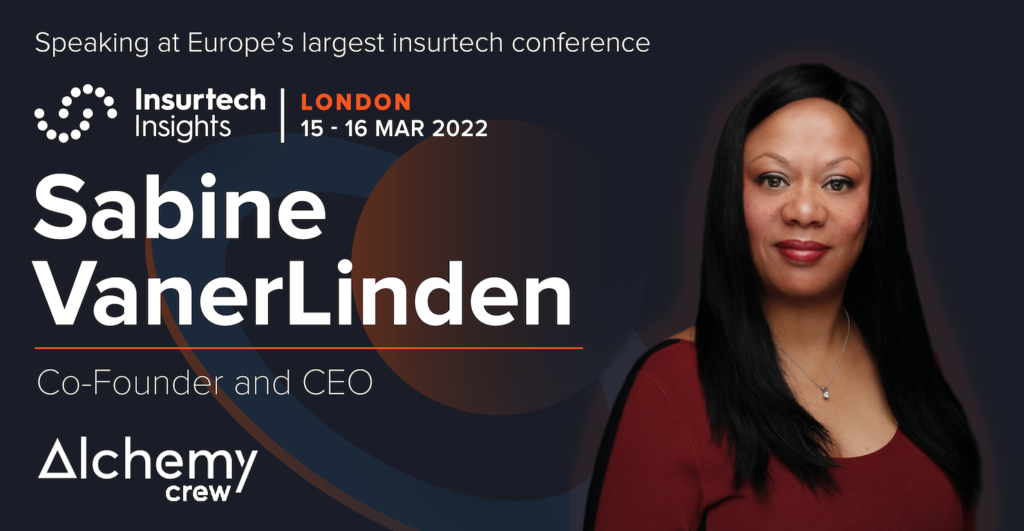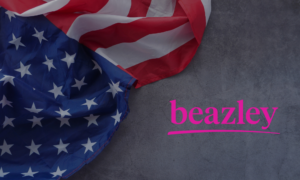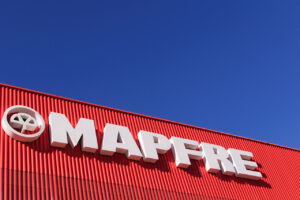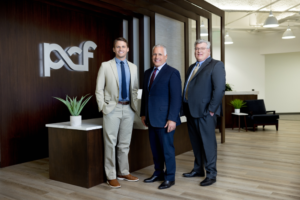1. Why do you think it is important to celebrate International Women’s Day?
International Women’s Day is a global day celebrating the social, economic, cultural and political achievements of women from all around the globe. The day also creates a significant call to action for accelerating gender parity. This means addressing the balance between equality and equity as we continuously learn about the gaps that exist in the marketplace for sub segments within the “women” category. Think about minorities, women of colour, women with different sexual orientations. I also feel this is a day when we can say it is OK to be different, empowered and focused on achieving our unique purpose and goals.
It is therefore important to celebrate International Women’s Day to create awareness of the deficiencies in parity within working environment — lack of equality or where all genders have equal rights, responsibilities, and opportunities as others, and lack of equity which is about the fairness in the way people are treated according to their respective needs (think about pay based on results or outcomes or benefits). All these issues exist still in our current world even within some of the most recognised, established, and successful commercial institutions.
This challenge also exists within our FinTech and InsurTech world today. 25% of women within emerging tech finance are startup founders. We also need more young women to register on STEM courses. When one evaluates and analyses the talent within FinTech ventures we can see that old habits still reside. Within FinTechs that are out there, very few have a gender balance team, advisory board, or board. And at the same time, I recently have been so happy and inspired to see some amazing changes happening within our InsurTech unicorn portfolio. You can see this by just checking the team pages on their website or the PR announcements.
At the end of the day. Something needs to give. Something needs to change!
If companies truly understand that addressing these requirements is not a choice. Think about ESG, procurement and vendor compliance today. Big and small companies will require to meet a specific DEI compliance ratio to win the deal.
2. Have you faced any barriers in your career? If so, how did you overcome them?
We all experience challenges in our careers, particularly when our values clash with the corporate status quo or the beliefs that exist. What bothered me the most: realising that I may be the highest growth or revenue earner and being paid less than my peers or working with colleagues that are not pulling their weight.
Still, I would say that I have been one of the lucky ones. I am a straight talker, so people know where I stand. I knew that at some point I would do something for myself. I would better align and elevate my purpose, values, and beliefs. So, moving from working with fortune 500 companies to smaller market players was not an issue for me, as I acquired the baseline expertise and skills I needed from the big guys. Whether I remember my time at Lloyd’s of London, IBM or the various tech companies I worked for, I believe that I was able to overcome biases and career challenges by:
1) Working with amazing mentors. In each company, I was guided, supported by mentors, and migrated my attention and efforts to initiatives supported by leaders that I admired and wanted to work with and for. Smart, giving and kind leaders that enjoyed training, coaching, and sharing their knowledge and skills to build the talent they saw required to build tomorrow’s business.
2) Signed-up for initiatives and opportunities that challenged my limitations. When I was younger, I was fortunate to work on growth initiatives that either required a very structured strategic lens to break a problem for impact or develop highly sophisticated financial models — my quantitative French education worked well here. These often required me to travel overseas and dedicated my time to one client for months. Value creation/ realisation has been and still is the way I look at things in my daily work.
3) Education. I am a student of life. I continuously educate myself to maximise my long-term pertinence, relevance, and resilience. I love to have a hard copy version of a book, a kindle version of the same book and an audible version of it too if it exists. I know I am Amazon’s dream customer. But often when I write and travel, I need the digital version of things. And for those versed in “sense-based learning” then repetition helps anchor things much better faster than the single option. Venture capitalists and corporate venturing experts are those giving me their time today to ensure that we all can build a lens on sustainable and innovative sources of future growth.
4) Capsule wardrobe. Whether one wants to recognise it or not. Clothes, handbags, and shoes have a part to play in the equation. While the pandemic has changed my wardrobe requirements I have always through about my appearance as part of the package. Reflecting onto this now, I believe that it may be a reason why I have rarely been referencing as the black girl, but the French girl across most of the interactions that referenced me over my career.
3. What are you most proud of achieving?
Moving from working for “others” to working for “myself” to help others achieve their long-term goals. I remember the time when I was approached by former leaders of a very well-known UK bank that had retired and invested millions in a FinTech startup. They needed the help to get the commercial proposition right. After 18 years working within the corporate environment, receiving a regular salary I decided to take a calculated risk which forced me to learn about scarcity, focus and time limitation. It is also always about understanding the result first or “the outcome” that needs achieving. Building both SBC (Startup Bootcamp) InsurTech and Hartford’s accelerators also showed me I could grow and scale businesses. Like a Nike advert that says, “Just do it”, you then understand why leaders focus their attention on very specific matters. Time is our most precious currency today.
4. Who is your role model and why?
In insurance, Bill Pieroni. Stephen Lathrope. I learnt my baseline frameworks about value creation, destruction, and realisation through financial modelling from Bill over 15 years ago. Stephen let me just get on with the job. From strategy, innovation, and proposition design to industrialising the method to make it reusable across three continents in my own way.
Big Tech, Gini Rometti. Steve Jobs. When I worked at IBM, I saw Gini able to being authentic and reaching out to the team and say thank you when the team did something significant for the group and its clients. Like many of us Steve Jobs inspires result oriented creativity. I have a strong belief that beauty should always be part of the equation.
Other sectors, Beyonce. Oprah Winfrey. Sara Blakely. I do have women of colour that inspire me as well as women who just dedicated their life to designing a very niche focused proposition. Beyonce represents strength. Oprah represents communication. Sarah represents those women that understand that results can be achieved from dedication and relentless focus.
5. Why do you think diversity in the workplace is so important?
“If the world wants to become a better place it needs to ensure gender equality and gender equity, involve women, minorities – avoid gender biases because if we want to serve the customer of the future as best as we can, we need to think about them as lucid, colourless, fluid, mixed and purposeful.” Sabine VanderLinden
It is likely to take a generation to get this right. But it is here, and it is coming fast. Think about generation Alpha who will expect diversity as part of their everyday lives. Also think about those generations that now will live, experience, and comprehend the true impact of pandemics and potential world transforming events. All these factors need to come into play when considering how to build workplaces that addresses emerging behaviour requirements, values, and believes.
Let’s not be fouled. The pandemic has had a considerable impact on women in the workplace. Think about remote working. Remote working has had significant impact on reducing diversity, equity, and inclusion initiatives within the work environment.
While employees can achieve more home-life balance through flexible work, the effect of remote working brought more shore onto women than had to juggle family life and work life.
This phenomena is called the invisible workload where women take extra work (such as unpaid labour, volunteering or teaching work) for which they are not recognised. Those do not lead to career advancement. IT leaders have been most affected by this trend because they had to help others become remote!
Shape and execute the right initiatives to address post pandemic pressing emerging issues that seriously consider remote working and the invisible demands added to the working woman workload.
6. What is the most important message you want to send out to young women thinking about their careers?
It is a difficult one as everyone is different. Still, group behaviour tends to have a much greater and better impact on an ecosystem.
I would say to young women be louder, participate to empowering initiatives, and get involved with your peers within and outside the sector.
Also help your employer deploy schemes that make sense to you. Everyone needs help to get it right.
Topics that are gradually appearing as becoming requirements include:
· making flexible work the norm
· leading with empathy and trust
· promoting mentorship programs that facilitate internal and external networking opportunities
· creating programs that facilitate faster learning
· ensuring that clear rewards and succession plans are in place
· making respect, diversity, and inclusion not negotiable!
7. Finally, how do you feel about the state of diversity in the insurance industry – what can the industry do to improve on this?
To address the needs of the customers of the future, whether those are young – purpose driven generations, mobile first digital natives and omni-channel champions, businesses do not have a choice.
Established market players as well fast-moving new market entrants must ensure that they deploy DEI driven strategies.
“If the world wants to become a better place it needs to ensure gender equality and gender equity, involve women, minorities – avoid gender biases because if we want to serve the customer of the future as best as we can, we need to think about them as lucid, colourless, fluid, mixed and purposeful.” Sabine VanderLinden








